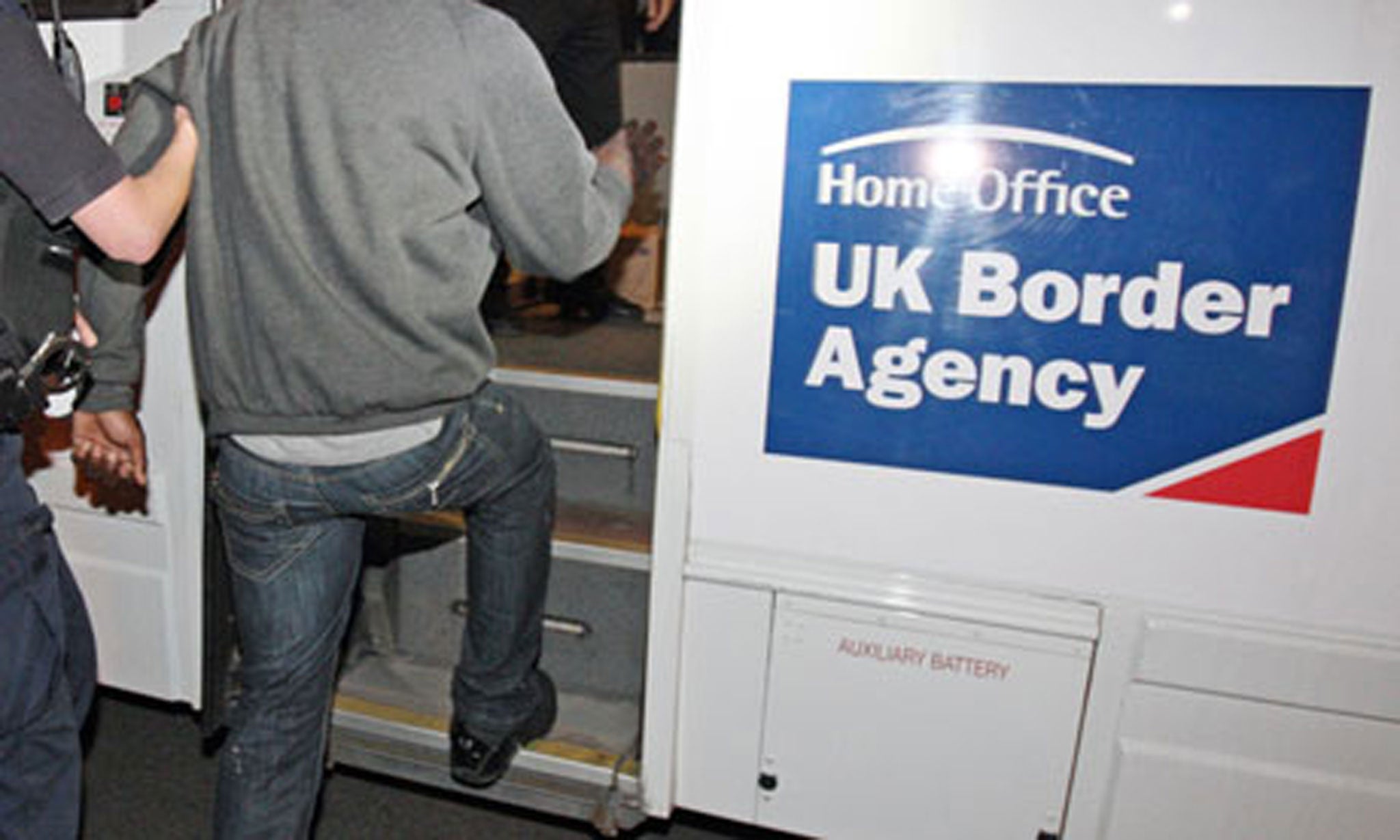What is the reasonable way for UK asylum seekers to 'prove they are gay'?
A culture of disbelief now governs the Border Agency's questioning of asylum seekers

Your support helps us to tell the story
From reproductive rights to climate change to Big Tech, The Independent is on the ground when the story is developing. Whether it's investigating the financials of Elon Musk's pro-Trump PAC or producing our latest documentary, 'The A Word', which shines a light on the American women fighting for reproductive rights, we know how important it is to parse out the facts from the messaging.
At such a critical moment in US history, we need reporters on the ground. Your donation allows us to keep sending journalists to speak to both sides of the story.
The Independent is trusted by Americans across the entire political spectrum. And unlike many other quality news outlets, we choose not to lock Americans out of our reporting and analysis with paywalls. We believe quality journalism should be available to everyone, paid for by those who can afford it.
Your support makes all the difference.So how do you ‘prove’ that you are straight? Imagine you are a straight man sitting before a twenty-something Home Office interviewing officer and she asks you the following ‘probing’ questions… ‘When did you first realise you were a practising heterosexual? Name all the football clubs in the Premier Division? Do you have any medical evidence to prove that you have sex with women? What is this video tape of you having sex with a woman going to prove?’
The above is a hypothetical scenario, as the likelihood is that you are not claiming asylum in the UK on the basis that you are a straight man. But for countless lesbian, gay, bisexual, trans or intersex (‘LGBTI’) asylum seekers, having to ‘prove’ their sexual and/or gender identities is the major battleground in succeeding in their asylum clams. Examples of questions include ‘When did you first realise that you are homosexual? Name the works of Oscar Wilde?’ And in the case of one Immigration Judge ‘Where is the medical evidence to prove penetrative sex?’
The Home Affairs Select Committee in their report on Asylum published last Friday analysed the major defects within the asylum system, and the ‘culture of disbelief’. Keith Vaz MP, as Chair of the Committee, was alarmed at the lengths gay asylum seekers feel forced to go to, including the submission of video and photographic evidence, in order to ‘prove’ that they are gay. He is quoted by the BBC as saying:
“People should accept the statement of sexuality by those who seek asylum. This practice is regrettable and ought to be stopped immediately.”
As the Independent highlighted last February, filming, or photographing sexual acts, to provide corroborative evidence to prove sexual identity is "inhuman and degrading" and should be stopped. Nevertheless, this practice still continues, and has now led in September to the Home Office requesting that when submitting such evidence, legal representatives should place special labels on such ‘sensitive’ material. What the Home Office should be doing is tackling this issue head on, and as Vaz is reported to say, accept the evidence on sexual identity, or in my opinion, apply an alternative approach which addresses claims in a sensitive manner.
S. Chelvan is a barrister at No5 Chambers, and is a leading expert in asylum claims based on sexual or gender identity. In his written evidence to the Select Committee, Chelvan referred to the shift from discretion to disbelief, since the July 2010 landmark UK Supreme Court judgment which struck down the ‘reasonably tolerable discretion test’:
“Up until July 2010 the UK Border Agency refused claims on the basis of ‘voluntary’ discretion, and had no concerns about establishing the sexual identity of the gay applicant. Suddenly, since July 2010, supposedly due to a fear of false claims, the shift has been from discretion to disbelief. The battleground is now firmly centred in ‘proving’ that they are gay.”
In his ‘DSSH’ model (Difference, Stigma, Shame and Harm), endorsed last October by the United Nations High Commission for Refugees in their International Protection Guidelines, Chelvan provides a tool to examine the asylum claims on the basis of sexual or gender identity, based on exploring concepts, rather than an asking an exhaustive list of proscribed questions. Ask any gay or trans friend when they first realised they were different? A common response is based on events which pre-date any actual sexual conduct, and are based on lack of conformity with a heterosexual narrative. This results in Stigma, then Shame, which then leads to the well-founded fear of Harm in countries where being gay can result in the case of lesbians in Jamaica to ‘curative rape’, or in the case of gay men in Iran, death. Freedom from Torture assists victims of persecution and knows of countless cases where gay asylum seekers have been targeted for the fact that, as Chelvan states, they are not ‘straight enough’. As the Select Committee report accepts “[I]t is not appropriate to force people to prove their sexuality if there is the perception that they are gay”.
The Home Office should consider adopting this DSSH model, as has been done in New Zealand last May, to provide a more humane approach to establish genuine asylum claims. Only then, can we once again be proud of our tradition in providing protection to those who flee persecution.
Keith Best is Chief Executive Officer of Freedom from Torture. He joined the organisation from the Immigration Advisory Service (IAS), where he worked as Chief Executive for 16 years, until 2009. He is a former Member of Parliament.
Join our commenting forum
Join thought-provoking conversations, follow other Independent readers and see their replies
Comments